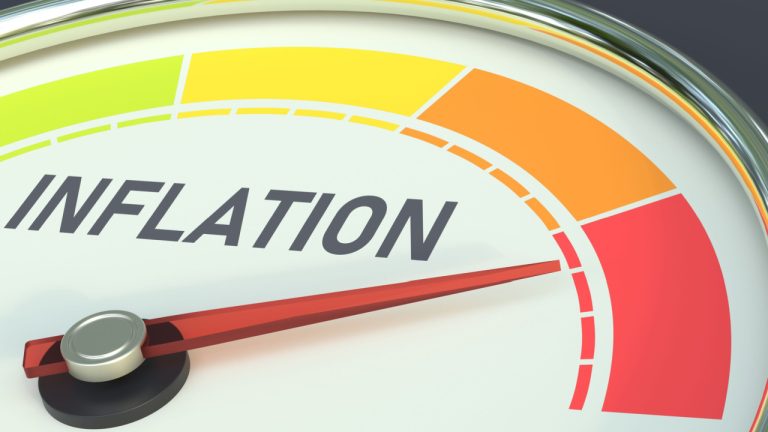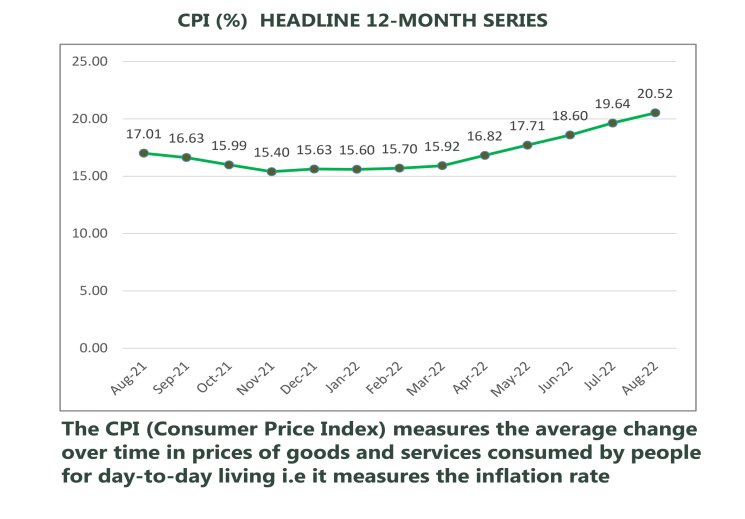
While Nigeria’s year-on-year inflation rose for the seventh straight month to 20.52% in August 2022, the latest data from Nigeria’s National Bureau of Statistics shows that the month-on-month rate declined from 1.82% to 1.77% during the same period. The depreciation of the local currency, disruptions in the supply of food products, and an increase in the costs of production are said to be the factors behind the latest increase.
Currency Depreciation Driving Inflation
According to the latest data from Nigeria’s National Bureau of Statistics (NBS), the West African country’s headline inflation for the month of August 2022 topped 20.52%. The latest rate is 3.51 percentage points higher than the 17.01% recorded in August 2021.

With this latest surge, Nigeria has now seen its year-on-year (YoY) inflation increase for the seventh consecutive month. According to the statistical body, the depreciation of the local currency is one of the main factors that caused the YoY inflation rate to surge.
As reported by Bitcoin.com News, the Nigerian currency’s exchange rate against the U.S. dollar plunged to a new low in late July 2022. While the country’s central bank has blamed speculators for their role in undermining the local currency, some economists argue that the ongoing shortage of foreign currency is largely to blame.
Besides the currency depreciation, the NBS also pointed to disruptions in the supply of food and the increase in general production costs as the other factors that caused the YoY inflation rate to rise.
Month-on-Month Inflation Declines
However, despite the latest surge in the country’s YoY inflation, the NBS data suggests the month-on-month inflation dropped marginally from the 1.82% seen in July 2022 to 1.77% in August 2022. Concerning the country’s consumer price index (CPI), the statistical body said:
The percentage change in the average CPI for the twelve months period ending August 2022 over the average of the CPI for the previous twelve months period was 17.07%, showing a 0.47% increase compared to 16.60% recorded in August 2021.
Meanwhile, the NBS data shows that the YoY inflation rate in urban Nigeria (20.95%) was marginally higher than in rural Nigeria (20.12%). On a month-to-month basis, the rural inflation rate dropped by 0.06% from 1.81% in July 2022 to 1.75% in August 2022, while the urban rate only went down by 0.03%.
Register your email here to get a weekly update on African news sent to your inbox:
What are your thoughts on this story? Let us know what you think in the comments section below.

إرسال تعليق